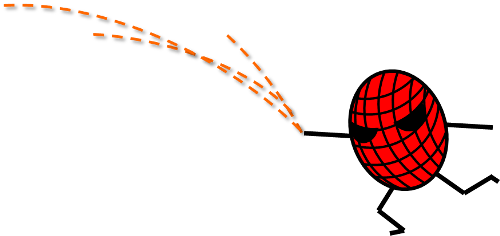Team:Tokyo Metropolitan/Project/Fiber/Protocol
From 2010.igem.org
(Difference between revisions)
| Line 209: | Line 209: | ||
==Protocol6:DNA Purification with silica gel == | ==Protocol6:DNA Purification with silica gel == | ||
| - | <font size="3"><span style="text-decoration:underline">Material</span> | + | <font size="3"><span style="text-decoration:underline">Material</span></font> |
<font size="2"> | <font size="2"> | ||
*Binding buffer | *Binding buffer | ||
*silica gel | *silica gel | ||
*wash buffer | *wash buffer | ||
| - | *TE buffer | + | *TE buffer</font> |
| - | <font size="3"><span style="text-decoration:underline">Equipment</span> | + | <font size="3"><span style="text-decoration:underline">Equipment</span></font> |
<font size="2"> | <font size="2"> | ||
*centrifuge | *centrifuge | ||
| Line 222: | Line 222: | ||
*aspirator | *aspirator | ||
*pipette | *pipette | ||
| - | *pipette tip | + | *pipette tip</font> |
| - | <font size="3"><span style="text-decoration:underline">Procedure</span> | + | <font size="3"><span style="text-decoration:underline">Procedure</span></font> |
<font size="2"> | <font size="2"> | ||
#Add 3 times Binding buffer than digestion production | #Add 3 times Binding buffer than digestion production | ||
| Line 236: | Line 236: | ||
#Add TE buffer and mix with Vortex | #Add TE buffer and mix with Vortex | ||
#Centrifuge 30sec | #Centrifuge 30sec | ||
| - | #Supernatant contains DNA | + | #Supernatant contains DNA </font> |
==Protocol7:Restriction enzyme digestion== | ==Protocol7:Restriction enzyme digestion== | ||
Latest revision as of 15:38, 27 October 2010

E.coli Fiber Project Protocol
Protocol1:Grow up a culture of A.xylinum
Material
Equipment
Procedure
Note
|
Protocol2:Grow up a culture of E.coli
Material
Equipment
Procedure
|
Protocol3:PCR
Material
Equipment
Procedure
|
Protocol4:Agarose gel electrophoresis
Material
Equipment
Procedure
|
Protocol5:DNA extraction from agarose gel
Material
Equipment
Procedure
|
Protocol6:DNA Purification with silica gel
Material
- Binding buffer
- silica gel
- wash buffer
- TE buffer
Equipment
- centrifuge
- vortex
- aspirator
- pipette
- pipette tip
Procedure
- Add 3 times Binding buffer than digestion production
- Add 10µl of silica gel and mix with Vortex
- Centrifuge 1min
- Remove supernatant with aspirator
- Add Wash buffer and mix with vortex
- Centrifuge 30sec
- Remove supernatant with aspirator
- Remove ethanol by drying
- Add TE buffer and mix with Vortex
- Centrifuge 30sec
- Supernatant contains DNA
Protocol7:Restriction enzyme digestion
Material
Equipment
Procedure
|
Protocol8:Ligation
Material
Equipment
Procedure
|
Protocol9:Transformation
Material
Equipment
Procedure
|
Protocol10:Extraction of plasmid
Material
Equipment
Procedure
|
Protocol11:Sequence
Material
Equipment
Procedure
|
 "
"
